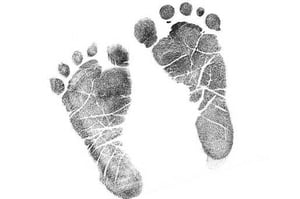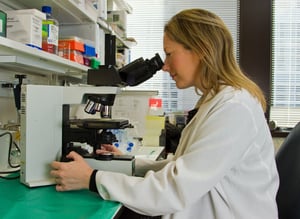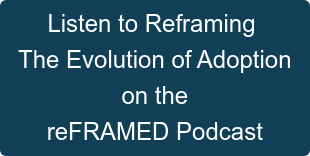It is past time to give adopted adults access to their original birth certificates, and the Gladney Center for Adoption is working to make that happen. As with everything else, adoption is ever evolving. Even with this evolution, everything surrounding the adoption is intended to protect everyone involved, including the best interests of the child as well as the rights and needs of the birth parents. When the child grows up and wants to search for his or her birth parents, we must continue to be respectful of the birth parents, allowing them to have some control over having their story exposed. In the new age of technology and genetic testing, limiting access to birth records does not protect birth mothers. Giving easy access to birth certificates will not only allow adopted adults to search out and possibly connect with their birth parents, it will give birth parents the opportunity to choose their next steps in a world where privacy is not guaranteed.
 Adoption terminates one family’s legal relationship to a child and creates a new legal family. As part of the legal process, the child receives an amended birth certificate. The amended birth certificate identifies the adoptive parents as the child’s parents, and the original birth certificate is sealed. In many states, including Texas, in order to access the original birth certificate, the adopted person usually must obtain a court order. It is this original birth certificate that people who were adopted have been seeking access to for many years when searching for their birth mothers. A number of well-meaning government officials and legislators have promised privacy for birth mothers, and consequently, expressed their intent to protect a birth mother’s identity by keeping birth records sealed. There are so many ways a birth mother can now be located without her permission, that any such belief ignores today’s reality.
Adoption terminates one family’s legal relationship to a child and creates a new legal family. As part of the legal process, the child receives an amended birth certificate. The amended birth certificate identifies the adoptive parents as the child’s parents, and the original birth certificate is sealed. In many states, including Texas, in order to access the original birth certificate, the adopted person usually must obtain a court order. It is this original birth certificate that people who were adopted have been seeking access to for many years when searching for their birth mothers. A number of well-meaning government officials and legislators have promised privacy for birth mothers, and consequently, expressed their intent to protect a birth mother’s identity by keeping birth records sealed. There are so many ways a birth mother can now be located without her permission, that any such belief ignores today’s reality.
The expectation of confidentiality as well as post adoption relationships have been evolving over many years. In the past, adoption offered a birth mother a confidential option for her unplanned pregnancy. Birth records were sealed, and birth mothers believed their identities would remain confidential. Over time, social norms around unplanned pregnancies began to relax. Beginning in the late 90’s, the explosion of the internet increased access to previously unavailable information about the world and about each one of us, reducing prospects, and expectations, for total privacy in our personal lives. Adoption was already on a trajectory for increased openness. This new information age generated by the internet opened up new options for birth mothers, and most became more actively engaged in their adoption planning than ever before. While some birth mothers today choose a confidential adoption plan, most women want to meet the adoptive parents, and many maintain an ongoing relationship with the adoptive parents and the child. Even those birth mothers choosing a confidential plan understand that their child is likely to have their identity at some point in the future.
 In the early 2000’s, the world took another step forward with direct-to-consumer DNA testing. As a result, birth parents who had previously made a confidential adoption plan were no longer able to remain confidential, regardless of courts, internet limitations, or sealed records. Results from inexpensive in-home DNA kits gave adopted persons easy access to reliable information that could quickly lead to the identity of their birth parents. Adopted adults and genetic relatives began connecting. There was no longer a need to ask a court for access to a birth certificate in order to find the birth parents.
In the early 2000’s, the world took another step forward with direct-to-consumer DNA testing. As a result, birth parents who had previously made a confidential adoption plan were no longer able to remain confidential, regardless of courts, internet limitations, or sealed records. Results from inexpensive in-home DNA kits gave adopted persons easy access to reliable information that could quickly lead to the identity of their birth parents. Adopted adults and genetic relatives began connecting. There was no longer a need to ask a court for access to a birth certificate in order to find the birth parents.
One significant consequence of direct-to-consumer DNA testing is that an adopted person often locates and communicates with extended relatives before the birth mother knows it’s happening. The newfound genetic relative and adopted person work together, using the process of elimination, to finally identify which of the remaining relatives might be the actual birth parent. Although effective in finding the birth parent, it is easy to understand how the birth parent could feel exposed and disempowered.
Easy access to birth records is a better way forward. In 2020, there is no longer a valid reason for denying the adopted person access to his or her original birth certificate.
Opening birth records provides adopted adults who might seek out their birth parents via genetic relatives with a more direct option. The birth mother’s privacy cannot be protected by refusing to release the document. In fact, giving the adopted person his or her original birth certificate is more respectful of the birth mothers who were promised confidentiality so many years ago. If the adopted adult is given the birth mother’s name, he or she can seek out, locate, and contact the birth mother directly. There is less likelihood of a distant biological cousin learning of the unplanned pregnancy, and then meeting the adopted relative, before the birth mother even knows her child was searching for her.
Many states are already giving adopted adults access to their original birth certificates, without court intervention or costly processes. It is time for all states to offer the same respect to all birth mothers. Giving adopted adults their original birth certificates has not resulted in calls from concerned birth mothers to agencies or attorneys. There have been a number of stories, however, of birth mothers being upset and confused when they learn the children they placed for adoption connected with other relatives through DNA.
Advances in technology and changes in societal norms cannot be ignored. While the world has changed and practices have evolved, preventing adopted adults from having access to their original birth certificates is a relic of the past. Legislative action that changes the law, giving adopted adults access to their original birth records is the respectful decision for all parties.
📷: http://clipart-library.com, Photo by National Cancer Institute on Unsplash

.jpg)






